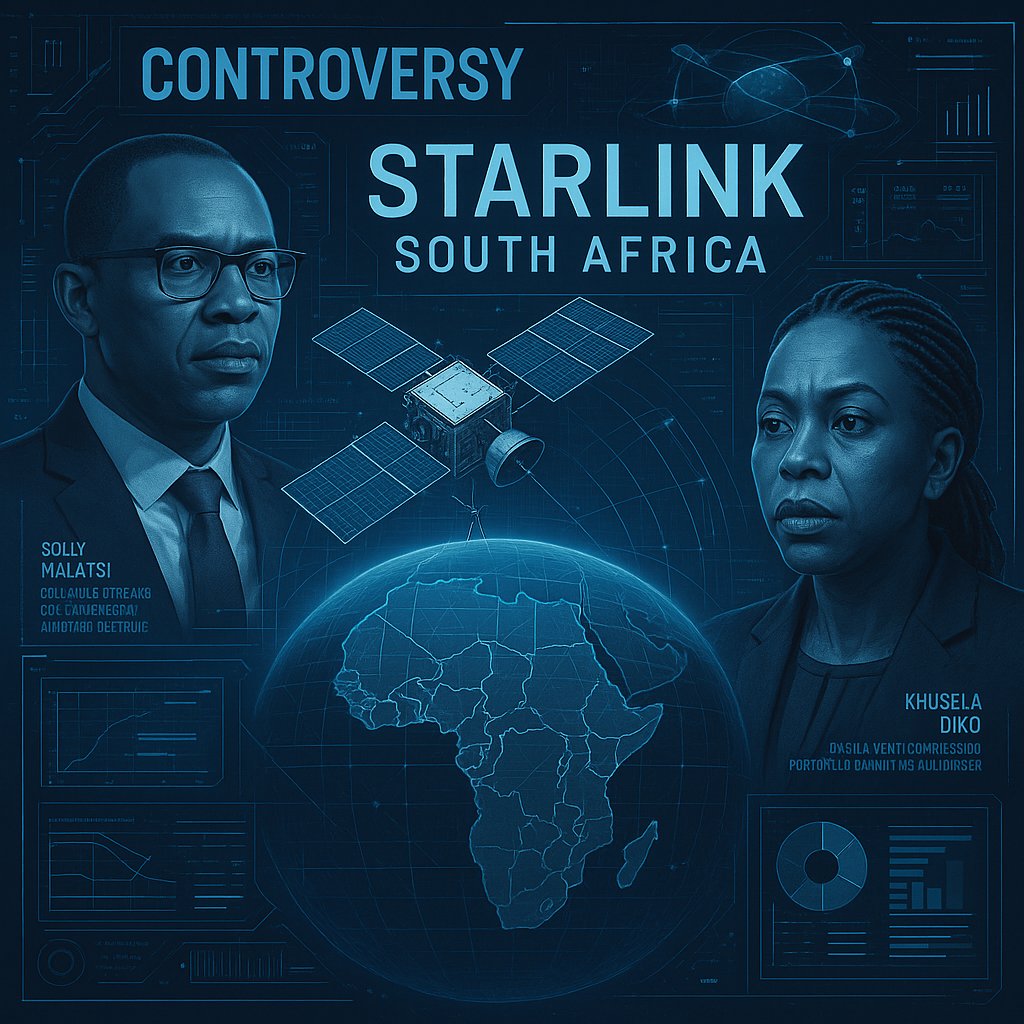Image created by AI
Controversy Surrounds New Policy Directive on Starlink's Entry into South Africa
The recent move by South Africa's Communications and Digital Technologies Minister, Solly Malatsi, to publish a policy directive that might allow Elon Musk's Starlink satellite internet service to operate in South Africa has sparked significant contention and a summons to Parliament. The chairperson of the Parliament's Communications Portfolio Committee, Khusela Diko, has expressed concerns that the directive might contravene the existing Electronic Communications Act (ECA) and appears to favor Starlink, a SpaceX-operated service.
This controversy arose after Minister Malatsi announced on a Friday the new policy direction which was promptly gazetted. The directive provides a potential legal pathway for international firms like Starlink to operate without fulfilling the traditional ECA requirement that mandates at least 30% of electronic communications services' ownership shares be held by historically disadvantaged South Africans. Although designed to facilitate new technologies and service providers in the telecommunications sector, the directive has been perceived as a sidestep around transformation goals traditionally upheld by ownership quotas.
The Economic Freedom Fighters (EFF) and other political entities have voiced fierce opposition to the directive, labeling it an unconstitutional move driven by external pressures and a betrayal of the agenda for socio-economic transformation in South Africa's ICT sector. They argue that the directive undermines the Broad-Based Black Economic Empowerment (B-BBEE) laws designed to rectify historical inequities.
Meanwhile, Diko has highlighted the potential legal challenges the government could face should this directive be implemented without proper legislative backing and consensus. The implications of such unilateral directives include heightened scrutiny from stakeholders and potential litigation, which could obstruct the deployment of new technologies like Starlink that promise to enhance connectivity in underserved areas.
Despite these challenges, the Communications Department defends the directive, stating that new entrants in the market like Starlink would still need to align substantively with the country's socio-economic development goals, even if they do not meet traditional ownership criteria. This policy stance is intended to balance innovation in telecommunications with South Africa's broader transformation objectives.
As debates continue and as Malatsi prepares to address these concerns in Parliament, the future of satellite internet and broader tech industry policies in South Africa hang in a delicate balance. Stakeholders are poised to watch closely how this balance between innovation and transformation is navigated in the regulatory arena.










